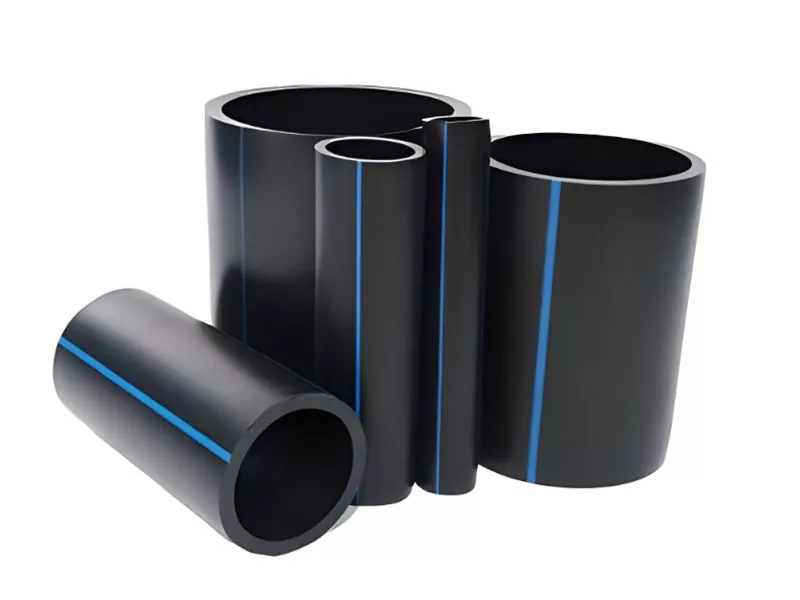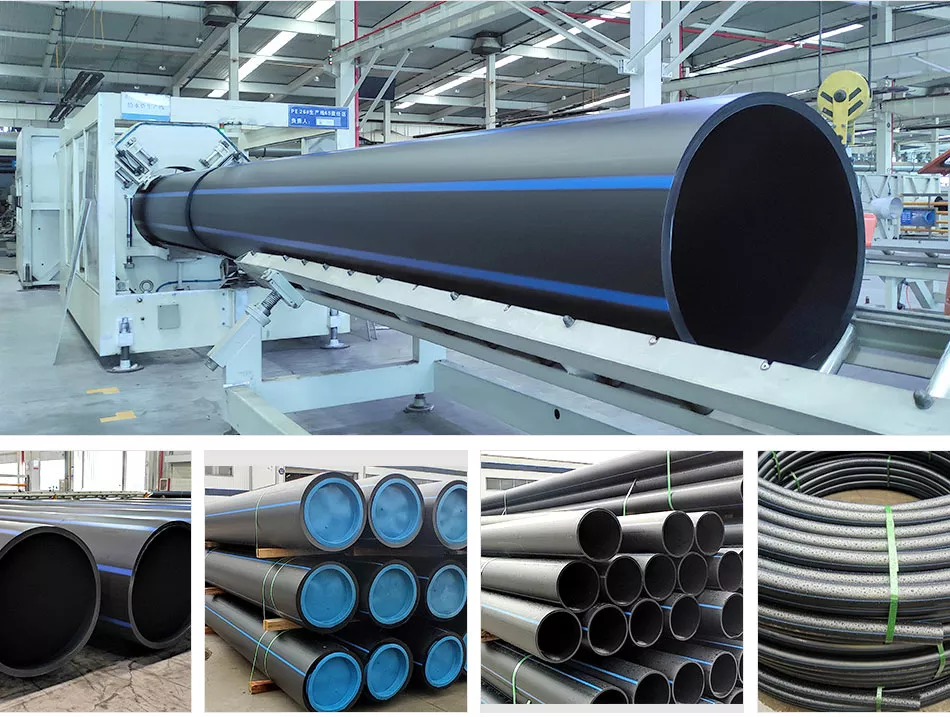A Comprehensive Overview to the Numerous Uses HDPE Pipeline in Building and Sector
HDPE pipelines have arised as a critical element in modern-day building and construction and commercial applications. Their one-of-a-kind residential properties, such as resistance to deterioration and lightweight design, make them ideal for a large range of usages. From water supply systems to agricultural watering, HDPE pipelines use options that improve effectiveness and sustainability. Comprehending their diverse applications is important for professionals looking to maximize facilities. What particular benefits do these pipes bring to each sector?
Water and Distribution Equipments
Water and distribution systems are crucial components of city framework, frequently counting on high-density polyethylene (HDPE) pipes for their sturdiness and efficiency. These systems transportation drinkable water from treatment centers to consumers, ensuring availability and safety. HDPE pipelines are favored for their resistance to deterioration, chemicals, and extreme temperature levels, which improves their longevity and minimizes maintenance prices. In addition, their lightweight nature permits simpler installment and transportation, making them excellent for various city and rural applications.
The flexibility of HDPE pipelines enables them to be installed in tight areas and around obstacles, lessening the need for comprehensive excavation (Pipe Manufacturing Midland TX). Additionally, their smooth indoor surface minimizes friction losses, enhancing water circulation prices. As cities remain to grow, the demand for trustworthy water supply systems increases, placing HDPE pipes as a lasting service for modern-day facilities tasks. Their tested record makes them a preferred choice amongst engineers and urban planners alike
Wastewater Monitoring and Therapy
Efficient wastewater management and therapy are essential for keeping public health and ecological quality. HDPE pipelines play a vital function in this process as a result of their durability, resistance to deterioration, and capability to withstand rough chemicals. These pipes are commonly made use of in different applications, consisting of sewage systems, stormwater drainage, and wastewater therapy facilities. Their light-weight nature facilitates less complicated setup and transport, minimizing labor costs and time.
In addition, HDPE pipes have a smooth interior surface area that decreases friction loss, promoting efficient flow rates. They are also less susceptible to leakages and failings compared to conventional products, ensuring that pollutants are had effectively. Furthermore, their versatility permits for adaptability in different soil conditions, making them suitable for diverse ecological setups. As markets significantly prioritize lasting practices, making use of HDPE pipes in wastewater administration systems aligns with goals for reducing environmental impact and enhancing source recuperation.
Agricultural Watering Solutions
In farming settings, efficient watering options are vital for enhancing crop returns and handling water resources. HDPE (High-Density Polyethylene) pipes play an essential duty in contemporary irrigation systems as a result of their durability, adaptability, and resistance to deterioration. Their capability to endure high stress makes them suitable for both surface and subsurface watering applications, guaranteeing consistent water circulation across areas.
Farmers can utilize HDPE pipelines in drip irrigation systems, which supply water directly to plant roots, lessening wastage and advertising healthy development. Furthermore, these pipelines are lightweight and very easy to set up, reducing labor expenses and installation time. Their lengthy lifespan and reduced upkeep demands further boost their allure in farming methods.
HDPE pipelines are ecologically friendly, as they can be recycled and do not seep unsafe chemicals into the dirt. This makes them a sustainable choice for farmers intending to adopt environmentally friendly agricultural methods while maximizing performance.
Industrial Applications and Processes
Versatility is a characteristic of HDPE pipes, making them essential in numerous industrial applications and procedures. These pipelines are commonly utilized in chemical handling sectors as a result of their outstanding resistance to a large range of destructive compounds. HDPE's lightweight nature, combined with high tensile strength, permits simple setup and long-term performance in demanding environments.
In the oil and gas sector, HDPE pipes play a vital function in carrying hydrocarbons Texas hdpe pipe manufacturer and gases, thanks to their sturdiness and versatility - hdpe pipe suppliers Midland TX. Additionally, they are used in mining procedures for the transportation of slurry and other products, where standard piping systems might fail
HDPE pipelines are increasingly made use of in producing centers for water supply lines and wastewater administration. Their ability to hold up against extreme temperature levels and pressures makes them ideal for a range of industrial procedures. Overall, HDPE pipelines contribute considerably to efficiency and security throughout diverse commercial applications.
Stormwater Administration and Drainage Solutions
Stormwater monitoring and drainage systems are essential elements in city infrastructure, created to manage excess rains and lower flooding dangers. High-density polyethylene (HDPE) pipelines are significantly used in these systems as a result of their resilience, adaptability, and resistance to corrosion. These pipelines efficiently carry stormwater far from populated locations, decreasing surface overflow and preventing waterlogging.
HDPE's lightweight nature facilitates much easier installment, decreasing labor prices and construction time. Furthermore, its resistance to chemicals and ecological stressors warranties longevity and dependability in various environments. In addition to typical drainage applications, HDPE pipelines are likewise employed in cutting-edge remedies such as green facilities, which consists of rain gardens and absorptive pavements.

Regularly Asked Questions
Exactly How Does HDPE Pipe Contrast to PVC Pipeline in Cost?
As a whole, HDPE pipeline tends to be a lot more pricey than PVC pipeline due to its enhanced longevity and flexibility. Nevertheless, lasting price factors to consider, such as upkeep and life-span, may favor HDPE in certain applications.

What Is the Life-span of HDPE Water Lines Under Numerous Problems?
HDPE pipelines usually have a life expectancy of 50 to 100 years, depending upon environmental problems, installation practices, and use. Aspects such as temperature, soil kind, and direct exposure to chemicals can considerably influence their durability.
Can HDPE Pipes Be Recycled After Usage?
Yes, HDPE pipes can be recycled after usage. The recycling process entails thawing down the product, enabling it to be repurposed into brand-new products, thereby promoting sustainability and reducing environmental influence connected with plastic waste.
Exist Any Details Setup Challenges With HDPE Pipes?
Setup difficulties with HDPE pipelines include correct jointing techniques, making certain appropriate trench conditions, and taking care of thermal expansion. Furthermore, experienced labor is called for to handle specific equipment, which can complicate the installment process in numerous environments.

What Qualifications Should I Look for When Buying HDPE Pipes?
When acquiring HDPE pipes, one should look for accreditations such as ASTM, AASHTO, and ISO, which validate quality and conformity with industry standards, assuring toughness and performance in numerous applications. - hdpe pipe fittings Midland TX